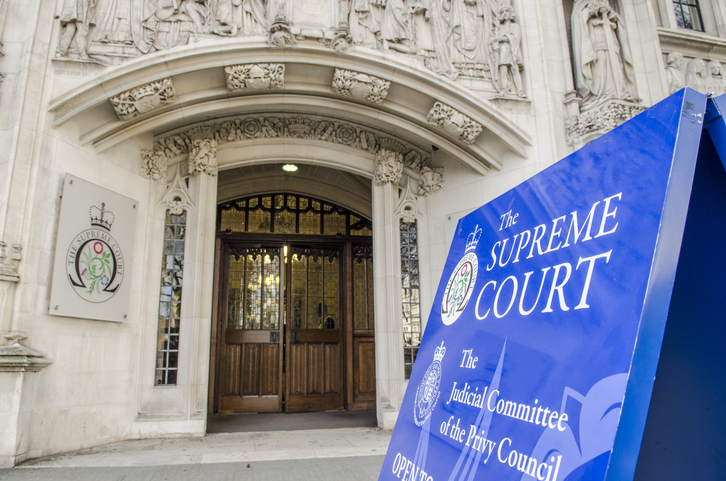UK Supreme Court ruling highlights conduct risk
A recent UK Supreme Court decision in relation to car finance may mean that the banking industry has escaped its worst fears in that specific case, but the issue has served to bring the issue of bank conduct risk out into the open once more.
UK banks have avoided a potential GBP 44 billion bill for customer compensation related to hidden commission payments on car finance contracts. This comes courtesy of a Supreme Court ruling that overturned the decision of a lower court last year that commission payments paid to car dealers by lenders without disclosure were unlawful.
The complaint was that the commissions amounted to bribes, or to secret profits received by the dealers who were considered to be fiduciaries. As fiduciaries, the dealers were obliged to act for their customers to the exclusion of their own interests.
Table of contents:
- No fiduciary duty owed by dealers
- Unfair relationship under CCA
- Echoes of PPI scandal
- US CFPB struggles with cutbacks
***
Get weekly insights from The Intuition Finance Digest. Elevate your understanding of the finance world with expertly-crafted articles and podcasts sent straight to your inbox every week. Click here: https://www.intuition.com/finance-insights-the-intuition-finance-digest/
***
No fiduciary duty owed by dealers
In the UK, the provision of motor finance products is a regulated credit activity under the Consumer Credit Act 1974 (CCA), and lenders and dealers acting as credit brokers in the sourcing of finance come under that regulatory framework.
The Supreme Court noted that although the rules require a dealer to disclose commissions if they could affect the dealer’s impartiality or have a material impact on the customer’s transactional decision, nothing in the regulations requires lenders or dealers to disclose the existence or amount of any commission paid by lender to dealer, or to obtain the customer’s consent to the payment.
Ultimately, the Supreme Court found there was no fiduciary duty owed by dealers and no secret commissions or bribes.

Unfair relationship under CCA
In the only win on the consumer side, the relationship between one of the borrowers and one of the lenders was found to be unfair within the meaning of the CCA, with the Supreme Court citing three grounds for its decision:
- The undisclosed commission was very high, amounting to 25% of the advance of credit and 55% of the total charge for credit (comprising interest and fees).
- The documents provided to the customer did not disclose the existence of a commercial tie between the lender and the dealer that gave the lender a right of first refusal. Rather, it created the false impression that the dealer was offering products from a range of lenders and recommending a product that best met the customer’s individual requirements.
- The customer did not read any of the documents provided by the dealer, however the court queried to what extent a lender could reasonably expect a customer (especially a commercially unsophisticated customer) to have read and understood the detail of such documents. In any case, no prominence was given to the relevant statements in the documents.

Echoes of PPI scandal
The UK has been the source of numerous instances of financial mis-selling controversies over the years, most notably the payment protection insurance (PPI) scandal that resulted in the UK banking industry being forced to issue billions of pounds in refunds and compensation on multiple grounds.
PPI was created ostensibly to safeguard consumers. The product was designed to insure a consumer’s loan or credit repayments in events of failure to work due to illness, accident, unemployment, and other related events. It was widely sold by banks and other lenders as an add-on to loans or other credit products.
However, many policies from the 1990s to around 2010 were sold to people who did not need them, could not claim on them, or didn’t even know they had been signed up. In the area of motor finance, for example, consumers opposed the PPI, yet dealers sold it to them. More widely, consumers were effectively compelled to acquire PPI because they were given to believe that it was necessary to secure loans, credit cards, mortgages, and other financial products.
Furthermore, PPI was inadequately discussed with consumers, and it was later ruled that it was not suitable or applicable for many consumers such as those with pre-existing medical conditions, self-employed, or those working in areas such as the military, professional sports, or prisons.
The PPI scandal stands as one of the most high-profile examples of systemic mis-selling in banking history, exposing how poor sales practices, misaligned incentives, and weak oversight can lead to widespread consumer harm.

US CFPB struggles with cutbacks
Following the UK Supreme Court car finance ruling, the country’s Financial Conduct Authority (FCA) will start a consultation process to set up a compensation scheme for those affected customers. Should such a scheme be established, the FCA estimates that compensation would be between GBP 9 and GBP 18 billion, much lower than the figures mooted prior to the ruling.
While the UK’s FCA can be expected to pursue industry transgressions with customary zeal, the ability of its US counterpart, the Consumer Financial Protection Board (CFPB), to do likewise would seem to be severely compromised in the wake of major staff and funding cuts.
In what is perhaps a sign of things to come, New York State is suing payments company Zelle on the grounds that the company failed to adopt critical safety measures that resulted in the loss of more than USD 1 billion of customer funds. New York Attorney General Letitia James filed the lawsuit after the CFPB abandoned a similar lawsuit, filed in December 2024, following the change in the federal administration. This is just one of numerous cases dropped by the CFPB recently. Attorney General James is seeking restitution and damages for affected consumers, as well as a court order forcing Zelle to maintain more robust anti-fraud measures.
Intuition Know-How, a premier digital learning solution for finance professionals, has several tutorials relevant to the content of this article:
- Business of Consumer (Retail) Banking
- Regulation – An Introduction
- Financial Authorities (UK) – PRA & FCA
- UK Conduct Regime
- Consumer Duty
- Dodd-Frank Act
- Fraud
Browse full tutorial offering



